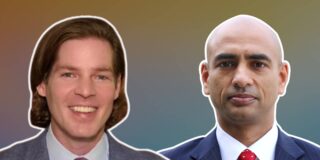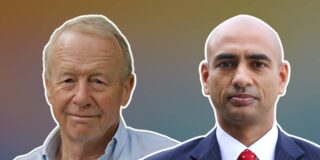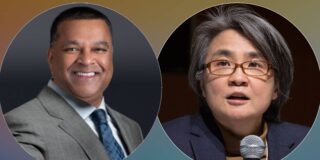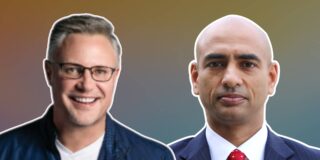Syrian dictator Bashar al-Assad fell from power in December 2024, marking the end of over five decades of rule by the Assad family. Now, Hayat Tahrir al-Sham (HTS), an Islamist group which was once a scion of al-Qaeda, stands victorious. Under the leadership of Abu Mohammad al-Jolani, a former al-Qaeda member himself, HTS controls significant portions of Syria.
Assad is a member of the Alawite minority of a mostly Sunni country. To retain the support of Syria’s diverse religious communities (including Shias, Christians and Druzes), the formally socialist, Ba’athist regime followed a policy of religious tolerance. However, events like the 1982 Hama massacre, which saw thousands of Sunnis killed in response to a Muslim Brotherhood rebellion, demonstrated that this tolerance did not extend to political dissent.
Now, the religious majority is back in power and, uner al-Jolani, the fate of Syria’s minorities hangs in the balance.
The future of religious freedom in Syria under HTS rule remains uncertain, but early indicators are not promising. Reports of Christmas tree burnings and large demonstrations demanding protection for Christians suggest that tensions are already rising. The track record of HTS in areas previously under their control, such as Idlib, where only two Christians reportedly remained due to their advanced age, paints a concerning picture for religious minorities.
Christians once made up about 10% of Syria’s population but have been steadily leaving the country during the 13-year-long civil war. By 2014, about 40% of Syrian Christians had already fled. This number is likely to have gotten far higher since then.
The potential loss of Syria’s diverse religious and cultural mosaic would be a significant blow not only to the country but to the entire region. Syria’s rich history as a crossroads of civilizations, exemplified by sites like the ancient bazaar in Aleppo, has long been a source of cultural wealth and complexity. A monolithic, confessional government could dramatically alter this diverse landscape, potentially erasing centuries of coexistence and shared heritage.
Ethnic minorities are in trouble too. The Kurdish population, while predominantly Sunni, faces a different set of challenges under the new regime. Kurds played a crucial role in fighting against ISIS and al-Qaeda during the civil war and have established a relatively progressive governance system in areas under their control, including gender-balanced leadership and women-led fighting units. However, the HTS ideology leaves little room for Kurdish political aspirations or national identity, potentially leading to increased conflict in Kurdish-controlled areas.
What might foreign actors do?
External actors, each pursuing their own interests, further complicate the situation in Syria. Turkey has supported HTS and other rebel groups to suppress Kurdish autonomy along its border. Israel, concerned about Iran and its proxies, has engaged in the conflict and is now receiving approaches from Druze communities seeking protection. The United States, Russia and Iran once played significant roles in the country, but their influence has waned.
Russia, in particular, had shifted its focus to European interests, reducing its support for the Assad regime. It now maintains two major bases in Latakia and Tartus, both in the mostly Alawite coastal region, but its ability to project influence is severely limited.
For the international community, Syria’s situation presents both opportunities and challenges. While many may celebrate the fall of Assad’s dictatorship, the rise of an Islamist government with ties to extremist groups raises concerns about human rights, regional stability and the fight against terrorism. The international community must balance these concerns with the principles of non-intervention and respect for Syrian sovereignty.
As Syria enters this new phase, the international community must remain vigilant about the treatment of religious minorities and the preservation of religious freedom. The coming months will determine whether Syria can maintain its pluralistic character or whether it will move toward a more intolerant, homogeneous governance.
[Peter Choi edited this podcast and wrote the first draft of this piece.]
The views expressed in this article/podcast are the author’s own and do not necessarily reflect Fair Observer’s editorial policy.

















Comment